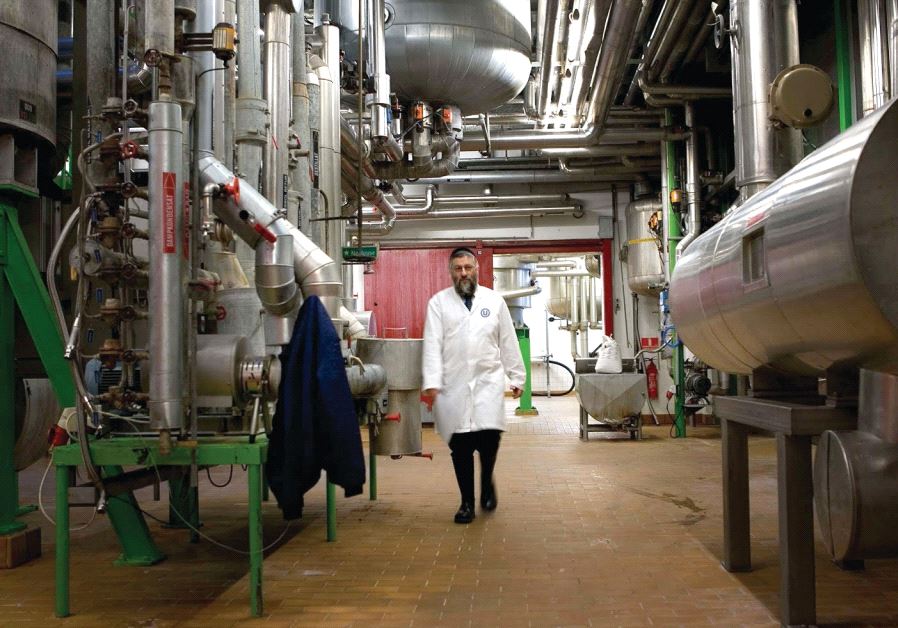Kashrut revolution: Tzohar to open kashrut authority
Tzohar’s kashrut authority will provide a viable and competitive alternative to that of the Chief Rabbinate.
 OU kashrut supervisor at work in a food manufacturing company(photo credit: COURTESY OF THE OU)Updated:
OU kashrut supervisor at work in a food manufacturing company(photo credit: COURTESY OF THE OU)Updated: